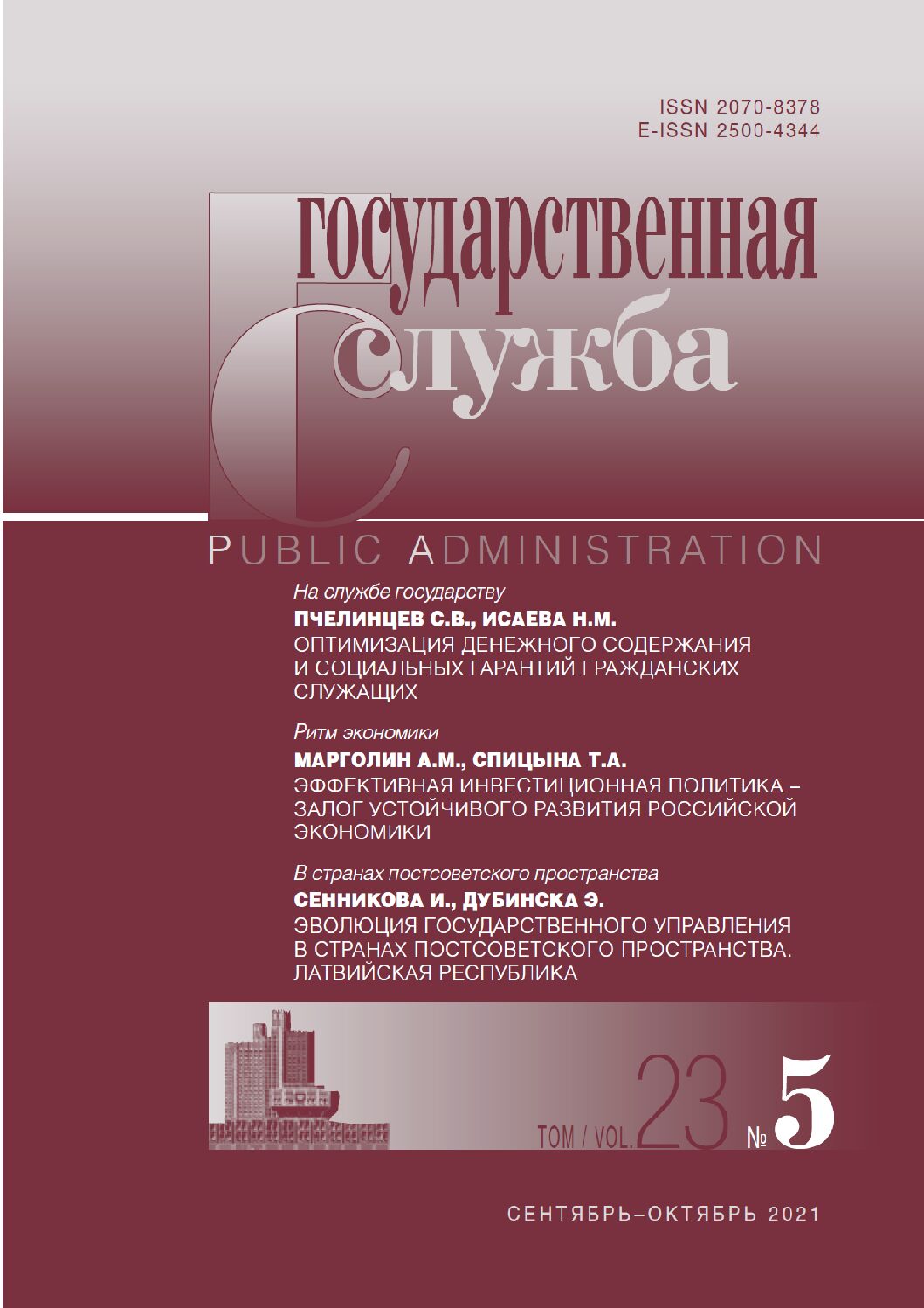Recommended link to article:
ILYA VALERIEVICH VINOKUROVа
аRussian Presidential Academy of National Economy and Public Administration
DOI: 10.22394/2070-8378-2021-23-5-60-66
Abstract:
The main advantages of the digital economy include the widespread use of the Internet and growth of digital skills, increased innovation and investment activity, expansion of markets for knowledge-intensive services and technologies, diversification of labor and service markets, inclusive development in regions, etc. The digital economy benefits productivity and competition between companies, reduces production costs, increases the number of high-performance jobs, enhances public welfare, and ensures national security. The purpose of the study is to identify the main problems of the digitalization process in Russia, which the Russian society may meet or have already faced during the introduction and use of new technologies and knowledge obtained as a result of the fourth scientific and technological revolution. Active business development in the field of computer information technology and telecommunications, as well as the creation of the necessary economic environment, contributes to an increase in the supply of information, technical and technological products that are associated with the use of computers and computer networks, strengthening the state scientific and technological potential, increase in demand for domestic information products, which are created and used for the production of information and computer technology, increase investment in information and computer sphere, as well as areas of implementation of such technologies in various economic sectors. Digitalization of economy will raise the quality of life for citizens, introduce new jobs, reduce regional disparities, increase labor productivity and corporate profitability, as well as ensure economic growth.
Keywords:
digitalization, digital economy, digital technologies, development prospects
Received:
September 27, 2021
References:
Babanov V.N. Factors and problems of developштп the digital economy in Russia. Izvestiya Tulskogo gosudarstvennogo universiteta. 2017. P. 255–261. In Russian
The World Bank. 2018. Report on the development of digital economy in Russia, September 2018. Competition in the digital age: policy implications for the Russian Federation. World Bank, Washington DC. License: Creative Commons Attribution CC BY 3.0 IGO. https://www.vsemimyjbank.org (date of access 09.19.2021). In Russian
Diane Sekou Abdel Kader. Intelligent robots and multi-agent robotic systems: prospects for social integration. Filosofskiye problemy informatsionnykh tekhnologiy i kiberprostranstva. 2020. No. 2 (12). P. 74–83. In Russian
Official website of the unified portal of the budget system of the Russian Federation. Moscow. Updated within 24 hours. http:// budget.gov.ru. In Russian
Abdrakhmanova G.I., Vishnevskaya K.O., Gokhberg L.M. et al. Indicator of the digital economy: 2020. Statistical collection. Moscow: NIU VShE, 2020. 248 p. In Russian
Kvilinskiy A.S., Trushkina N.V., Rynkevich N.S. Conceptual approaches to defining the term “information economy”. Problemy ekonomiki. 2019. No. 3 (41). P. 147–155. In Russian
Malyshkin N.G., Halimon E.A. Analysis of the level of development of digital economy in Russia. Vestnik Universiteta. 2018. No. 8. P. 79–86. In Russian
Manko S.V., Lokhin V.M., Romanov M.P. The concept of building multiagent robotic systems. Rossiyskiy tekhnologicheskiy zhurnal. 2015. Vol. 1 No. 3 (8). P. 156–165. In Russian
Grigorescu A. et al. Human capital in digital economy: An empirical analysis of central and eastern European countries from the European Union. Sustainability. 2021. Vol. 13. No. 4. P. 20.
Li Y. et al. Energy structure, digital economy, and carbon emissions: evidence from China. Environmental Science and Pollution Research. 2021. P. 1–24. In English
Saeedi K., Visvizi A. Software Development Methodologies, HEIs, and the Digital Economy. Education Sciences. 2021. Vol. 11. No. 2. P. 73. In English
Sturgeon T.J. Upgrading strategies for the digital economy. Global Strategy Journal. 2021. Vol. 11. No. 1. P. 34–57. In English
Yang J. et al. Big data, big challenges: risk management of financial market in the digital economy. Journal of Enterprise Information Management. 2021. In English
Articles in Open Access mode are published under the Creative Commons Attribution 4.0 International (CC BY) license.

